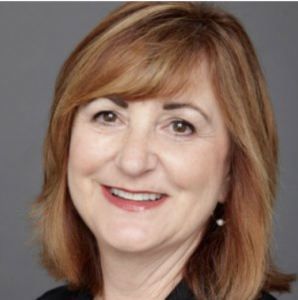Key takeaways: Aligning payments to suppliers with reimbursements from payers is critical for healthcare organizations…

Sandra Monacelli, Leann Spadaro Recognized as Outstanding Women Leaders in Supply Chain
Published in: The Journal of Healthcare Contracting
Sandra Monacelli, Vice President, End-to-End Supply Chain, Value Analysis, Nexera (a consolidated subsidiary of Premier) and Leann Spadaro, Director of Supplier Commercialization and Engagement, Premier Inc., have been named to the Journal of Healthcare Contracting’s 2022 “Women Leaders in Supply Chain.”
The Journal of Healthcare Contracting: What about challenges? What keeps supply chain teams up at night heading into late 2022?
 Sandra Monacelli: Throughout 2022, both Nexera opens in a new tab and Premier opens in a new tab have been laser focused on relieving the pain our healthcare organizations are feeling because of the lingering implications of COVID-19 and the resulting impact on supply chains, product shortages, labor challenges and rising costs.
Sandra Monacelli: Throughout 2022, both Nexera opens in a new tab and Premier opens in a new tab have been laser focused on relieving the pain our healthcare organizations are feeling because of the lingering implications of COVID-19 and the resulting impact on supply chains, product shortages, labor challenges and rising costs.
And I believe our team’s perspective is truly unique given our work over the last three years. Our embedded resources help members manage their supply chains on a day-to-day basis. We have the manufacturing perspective through S2S Global and Premier’s domestic investments alongside members. We’ve worked with New York City officials to determine the appropriate strategy for stockpiling and managing supplies throughout the pandemic. We’re coordinating across the industry – partnering with providers, suppliers and the government – to drive greater visibility and transparency to help mitigate disruptions.
Now and looking ahead, healthcare organizations require innovative solutions around long-term resiliency and product availability. With providers and supply chain teams asked to do more with less, resiliency also means financial resiliency – and pursing strategies that drive savings, enable margin improvement efforts and offset higher prices.
A clinically integrated supply chain presents a significant opportunity amid this backdrop, and with value analysis as a core operational mindset of how we do business. We’re bringing all stakeholders to the table – looking comprehensively at cost, quality and outcomes to generate opportunities for improvement. We’re also leveraging the value analysis process to vet and implement new technologies and ensure the right fit for an organization and its journey. My team views our role as critical to making sure everyone is heard and enabling strong partnerships across the supply chain.
For me, supply chain resiliency is about helping to ensure access to vital supplies and services providers need to care for patients, at the best possible prices and for the best possible outcomes. This is what we’re here for.
The Journal of Healthcare Contracting: In what ways has the supply chain changed for the better over the last 2-3 years?
 Leann Spadaro: Without question, it has been a challenging two to three years for healthcare supply chain as a result of the COVID-19 pandemic. Once a buzzword, ‘supply chain resilience’ became a top priority and today, is a sought-after business best practice. Resiliency today also means financial sustainability – and pursuing strategies that drive savings and productivity for the long term.
Leann Spadaro: Without question, it has been a challenging two to three years for healthcare supply chain as a result of the COVID-19 pandemic. Once a buzzword, ‘supply chain resilience’ became a top priority and today, is a sought-after business best practice. Resiliency today also means financial sustainability – and pursuing strategies that drive savings and productivity for the long term.
At Premier, we’re working with our health system members and suppliers in several key areas to address long-standing supply chain vulnerabilities and bolster resiliency. For instance, providers and suppliers across the nation are leveraging Remitra® opens in a new tab to mitigate workforce challenges, modernize AP and AR processes for better collaboration with one another and find savings opportunities all in one place.
Another way we are working with our members and suppliers is in the area of supplier diversity programs. Diversity programs broaden the pool of potential suppliers and promote competition, which can improve product quality and drive down costs. As a result of the pandemic, traditional supplier diversity programs within the supply chain are giving way to more strategic, collaborative approaches between providers and local small businesses.
We’re focused on helping diverse suppliers achieve the same savings, workforce optimization and efficiency benefits as their larger, often more well-known counterparts. Another way we can support these suppliers is by helping them quickly become preferred vendors, with the possibility to earn more business from hospitals and health systems using automation over the long term.



